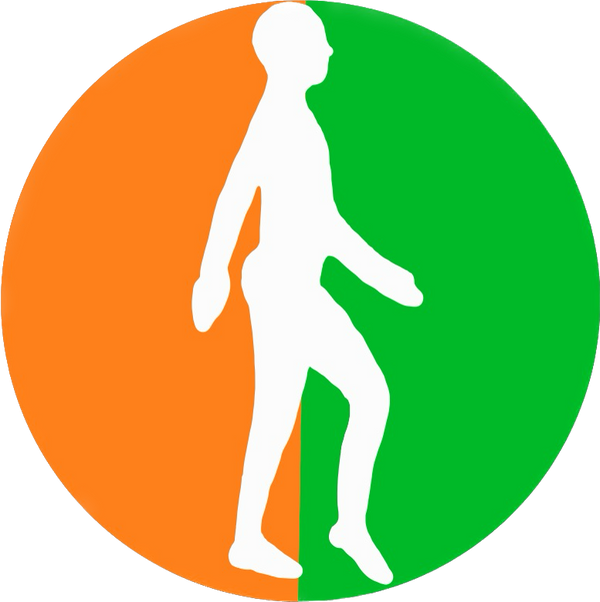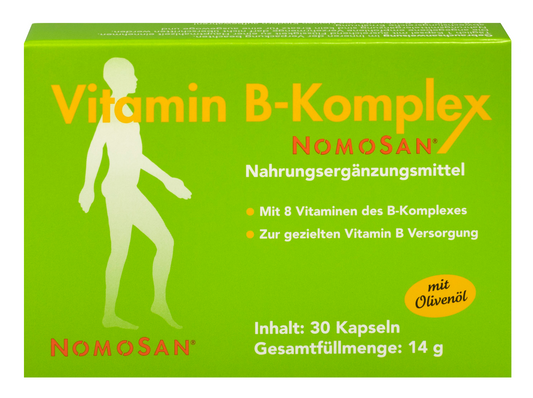Vitamins are essential nutrients that our bodies need to maintain a variety of biological functions. Each vitamin has specific roles that are crucial to our health and well-being. In this blog post, we will look in detail at the different vitamins from A to Z and their functions in the body.
Vitamin A (retinol)
Function:
- Supports vision
- Promotes the immune system
- Important for skin and mucous membrane cells
- Supports cell growth
Sources:
- Liver, carrots, sweet potatoes, spinach, kale
Vitamin A is essential for maintaining vision and skin health. It plays an important role in the functioning of the immune system and supports cell growth and differentiation.
vitamin B complexThe vitamin B complex consists of eight B vitamins, each of which has specific functions in the body:
Vitamin B1 (thiamine)
Function:
- Supports carbohydrate metabolism
- Important for nerve function
Sources:
- Whole grain products, pork, legumes
Thiamine is crucial for energy metabolism and the functioning of the nervous system. A deficiency can lead to fatigue and neurological disorders.
vitamin B2 (riboflavin)
Function:
- Supports energy metabolism
- Important for skin and eye health
Sources:
- Dairy products, eggs, green vegetables
Riboflavin helps convert food into energy and supports skin and eye health.
Vitamin B3 (niacin)
Function:
- Supports energy metabolism
- Important for DNA repair
Sources:
- Meat, fish, nuts, seeds
Niacin is important for energy metabolism and DNA repair. It also plays a role in skin and digestive health.
vitamin B5 (pantothenic acid)
Function:
- Supports the synthesis of coenzyme A
- Important for fatty acid metabolism
Sources:
- Meat, whole grains, avocados
Pantothenic acid is necessary for the synthesis of coenzyme A, an important molecule in the metabolism of fats and carbohydrates.
Vitamin B6 (pyridoxine)
Function:
- Supports amino acid metabolism
- Important for the formation of neurotransmitters
Sources:
- poultry, fish, potatoes, bananas
Pyridoxine is crucial for the metabolism of amino acids and the synthesis of neurotransmitters that are essential for brain function.
Vitamin B7 (biotin)
Function:
- Supports carbohydrate and fat metabolism
- Important for the health of skin, hair and nails
Sources:
- eggs, nuts, seeds
Biotin plays a key role in the metabolism of carbohydrates and fats and contributes to the health of skin, hair and nails.
Vitamin B9 (folate, folic acid)
Function:
- Supports DNA synthesis and cell division
- Important for blood formation
Sources:
- Dark green leafy vegetables, citrus fruits, beans
Folate is essential for DNA synthesis and cell division. It is especially important during pregnancy to prevent birth defects.
Vitamin B12 (cobalamin)
Function:
- Supports DNA synthesis
- Important for the functioning of the nervous system and blood formation
Sources:
- meat, fish, dairy products
Cobalamin is necessary for DNA synthesis and maintaining the health of the nervous system. A deficiency can lead to anemia and neurological problems.
Vitamin C (ascorbic acid)
Function:
- antioxidant
- Supports the immune system
- Important for collagen synthesis
Sources:
- citrus fruits, peppers, broccoli
Vitamin C is a powerful antioxidant that supports the immune system and promotes collagen synthesis, which is crucial for the health of skin, blood vessels and bones.
Vitamin D (calciferol)
Function:
- Supports calcium and phosphorus absorption
- Important for bone health
- Supports the immune system
Sources:
- Sunlight, fatty fish, fortified dairy products
Vitamin D promotes the absorption of calcium and phosphorus and is therefore essential for strong bones. It also plays an important role in the immune system.
Vitamin E (tocopherol)
Function:
- antioxidant
- Protects cells from damage caused by free radicals
Sources:
- Nuts, seeds, vegetable oils
Vitamin E protects cells from oxidative damage and supports the health of the skin and immune system.
vitamin K
Function:
- Supports blood clotting
- Important for bone health
Sources:
- Dark green leafy vegetables, broccoli, soybean oil
Vitamin K is necessary for blood clotting and bone health. It helps in the synthesis of proteins involved in these processes.
As you have read, vitamins are essential for numerous vital functions in the body. A balanced diet rich in various nutrients ensures that we get the vitamins we need in sufficient quantities. A deficiency in these essential nutrients can lead to various health problems. It is therefore important to ensure that we get enough vitamins through a healthy and balanced diet. In some cases, taking supplements may be necessary to meet the needs, especially when certain health conditions or dietary habits require it.
Sources:
- NIH Office of Dietary Supplements: Vitamin A
- NIH Office of Dietary Supplements: Vitamin B1 (Thiamine)
- NIH Office of Dietary Supplements: Vitamin B2 (Riboflavin)
- NIH Office of Dietary Supplements: Vitamin B3 (niacin)
- NIH Office of Dietary Supplements: Vitamin B5 (Pantothenic Acid)
- NIH Office of Dietary Supplements: Vitamin B6 (Pyridoxine)
- NIH Office of Dietary Supplements: Vitamin B7 (Biotin)
- NIH Office of Dietary Supplements: Vitamin B9 (Folate)
- NIH Office of Dietary Supplements: Vitamin B12 (cobalamin)
- NIH Office of Dietary Supplements: Vitamin C
- NIH Office of Dietary Supplements: Vitamin D
- NIH Office of Dietary Supplements: Vitamin E
- NIH Office of Dietary Supplements: Vitamin K
Discover our nutritional supplements here: Products – Nomosan Nutraceuticals

